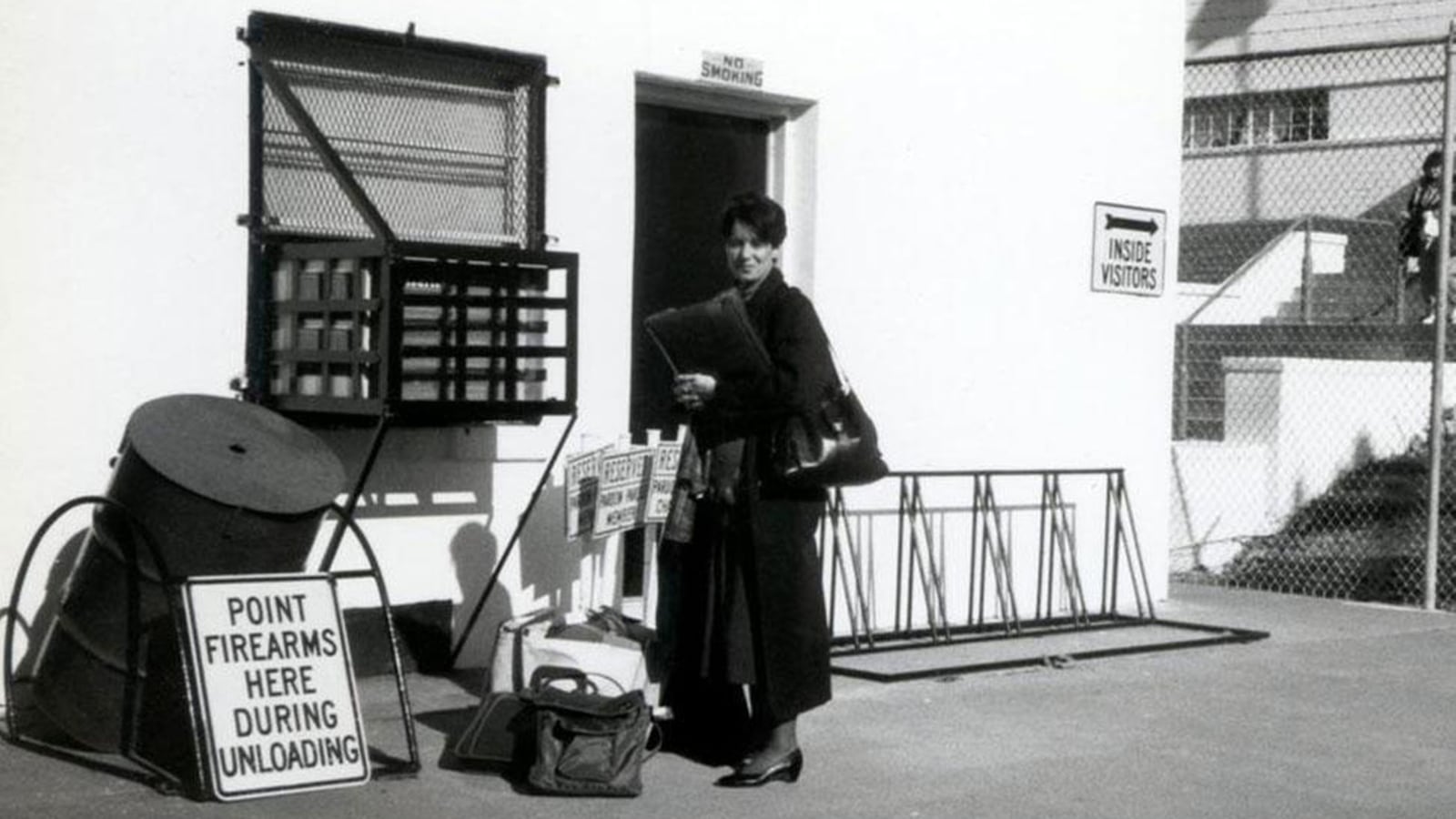VENICE—For many people, there is something intrinsically fascinating about murder: Alex Gibney’s latest documentary Crazy, Not Insane is for them.
The 117-minute film focuses on the life’s work of Dr. Dorothy Otnow Lewis, a controversial and important psychiatrist whose research has led her into the minds of some of the most notorious serial killers in modern history. She made her name defending the indefensible, convinced that brain damage—genetic and stemming from childhood abuse—triggers many to kill, and spawns multiple personalities in the most depraved.
Her archives, including videos and audio tapes, are a crazy mix of intimate conversations with psychopaths, perverts, and pedophiles. Gibney, in a Zoom press conference after the documentary screened at the scaled-down Venice Film Festival, described Dr. Lewis as a sort of homicide detective who relies on “radical empathy” to pit science against the court of law. Her goal: that no person who is clinically insane should be put to death by the justice system.
“Why do we kill our insane?” she asks several times in Gibney’s extensive interviews with her. She’s also convinced that anyone could be a killer if triggered. “Why do we kill? Why do some of us kill and others resist the temptation?” she asks at one point.
She and her assistant Catherine Yeager interviewed some of the scariest killers in recent memory, including Arthur Shawcross, a food service worker known as the Genesee River Killer, who murdered at least 14 people. During their interview, Dr. Lewis coaxes out one of his alter egos, who describes ingesting a victim’s vagina. It was this case where she says she learned the most about how to be effective on the witness stand, as she crumbled during the cross-examination after Shawcross’ defense team refused to have a neurologist take the stand to back her up. Self-righteous and confident, she wants to help the killers, but she will never do it at the cost of her own reputation.
Dr. Lewis also develops a slightly uncomfortable and edgy relationship with Joel Rifkin, a multiple-personality serial killer known as Joel the Ripper, who is thought to have killed at least 17 people. Among the most notable details of his killing style is dismemberment of his victims, including the removal of the teeth, fingertips and head of one female victim, which he left in a paint can on the seventh hole of a New Jersey golf course while hiding her legs several miles up the road. He dumped his victim’s torso and arms in the East River. He was sentenced to 203 years in prison, which he is serving at the Clinton Correctional Facility in New York.
Lewis’ short-lived relationship with Ted Bundy, who confessed to 30 murders, started when he asked to see her on the eve of his execution in 1989. Bundy was the product of a botched abortion, which Lewis believed led him to become such a heinous killer. He told Lewis off the record that he had sexually assaulted her sister, and that there was a serial killer hunting women who looked just like her.
She also interviews an executioner-for-hire, sitting in his trailer home drinking Budweiser as he explains why he loves to pull the switch on killers but doesn’t see himself in the same category. As their conversation unfolds, she gets him to show her his art after he tells her he paints a picture after each execution. Without knowing much about his childhood or neurological condition, even the armchair psychologist can tell that he harbors some pretty disturbing thoughts from his art alone.
The documentary is gripping and gory—there are plenty of crime-scene videos and when Gibney has no footage, a creepy animated cartoon fills in the action. For those who love true crime, this won’t tell you how the murders happened, but it gives a very good look into why they did.

Director Alex Gibney attends the 76th Venice Film Festival on Aug. 31, 2019, in Venice, Italy.
Alberto Pizzoli/AFP/GettyGibney told journalists via a Zoom conference that he believes the Trump administration’s reliance on revenge has seeped into the judicial system. “Their whole political legitimacy has to do with engaging a kind of primordial sense of rage,” he said. “So the death penalty fits neatly into that political paradigm, which is unfortunate because it does seem that a number of states slowly but surely are moving to abolish the death penalty.”
Gibney, who has tackled clerical sex abuse, Russian oligarchs, and many other hot-button issues, has now set his sights on the White House. First with a four-hour HBO docuseries called Agents of Chaos set to dissect Russian interference in the U.S. presidential election on Sept. 23. Then, he tackles the U.S. response to the global pandemic in a documentary called Totally Under Control set to release in October.
As for how his new flick will treat the Trump administration, it won’t be with kid gloves. “The United States did about the worst,” he said of the U.S. response to the COVID-19 pandemic. “It used to be one of the world leaders in terms of scientific research and the Center for Disease Control, but we’ve utterly failed.”


